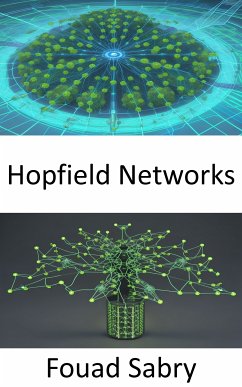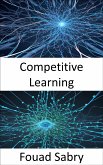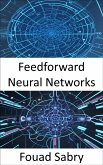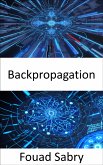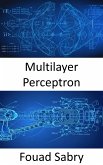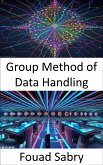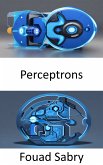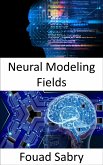What is Hopfield Networks
John Hopfield popularized the Hopfield network in 1982. It is a type of recurrent artificial neural network and a spin glass system. The Hopfield network was initially defined by Shun'ichi Amari in 1972 and by Little in 1974. The Hopfield network is based on the collaboration of Ernst Ising and Wilhelm Lenz on the Ising model. Hopfield networks are content-addressable ("associative") memory systems that can either have continuous variables or binary threshold nodes. Additionally, hopfield networks serve as a model for comprehending the human memory.
How You Will Benefit
(I) Insights, and validations about the following topics:
Chapter 1: Hopfield Network
Chapter 2: Unsupervised Learning
Chapter 3: Ising Model
Chapter 4: Hebbian Theory
Chapter 5: Boltzmann Machine
Chapter 6: Backpropagation
Chapter 7: Multilayer Perceptron
Chapter 8: Quantum Neural Network
Chapter 9: Autoencoder
Chapter 10: Modern Hopfield Network
(II) Answering the public top questions about hopfield networks.
(III) Real world examples for the usage of hopfield networks in many fields.
Who This Book is For
Professionals, undergraduate and graduate students, enthusiasts, hobbyists, and those who want to go beyond basic knowledge or information for any kind of hopfield networks.
What is Artificial Intelligence Series
The Artificial Intelligence eBook series provides comprehensive coverage in over 200 topics. Each ebook covers a specific Artificial Intelligence topic in depth, written by experts in the field. The series aims to give readers a thorough understanding of the concepts, techniques, history and applications of artificial intelligence. Topics covered include machine learning, deep learning, neural networks, computer vision, natural language processing, robotics, ethics and more. The ebooks are written for professionals, students, and anyone interested in learning about the latest developments in this rapidly advancing field.
The Artificial Intelligence eBook series provides an in-depth yet accessible exploration, from the fundamental concepts to the state-of-the-art research. With over 200 volumes, readers gain a thorough grounding in all aspects of Artificial Intelligence. The ebooks are designed to build knowledge systematically, with later volumes building on the foundations laid by earlier ones. This comprehensive series is an indispensable resource for anyone seeking to develop expertise in artificial intelligence.
John Hopfield popularized the Hopfield network in 1982. It is a type of recurrent artificial neural network and a spin glass system. The Hopfield network was initially defined by Shun'ichi Amari in 1972 and by Little in 1974. The Hopfield network is based on the collaboration of Ernst Ising and Wilhelm Lenz on the Ising model. Hopfield networks are content-addressable ("associative") memory systems that can either have continuous variables or binary threshold nodes. Additionally, hopfield networks serve as a model for comprehending the human memory.
How You Will Benefit
(I) Insights, and validations about the following topics:
Chapter 1: Hopfield Network
Chapter 2: Unsupervised Learning
Chapter 3: Ising Model
Chapter 4: Hebbian Theory
Chapter 5: Boltzmann Machine
Chapter 6: Backpropagation
Chapter 7: Multilayer Perceptron
Chapter 8: Quantum Neural Network
Chapter 9: Autoencoder
Chapter 10: Modern Hopfield Network
(II) Answering the public top questions about hopfield networks.
(III) Real world examples for the usage of hopfield networks in many fields.
Who This Book is For
Professionals, undergraduate and graduate students, enthusiasts, hobbyists, and those who want to go beyond basic knowledge or information for any kind of hopfield networks.
What is Artificial Intelligence Series
The Artificial Intelligence eBook series provides comprehensive coverage in over 200 topics. Each ebook covers a specific Artificial Intelligence topic in depth, written by experts in the field. The series aims to give readers a thorough understanding of the concepts, techniques, history and applications of artificial intelligence. Topics covered include machine learning, deep learning, neural networks, computer vision, natural language processing, robotics, ethics and more. The ebooks are written for professionals, students, and anyone interested in learning about the latest developments in this rapidly advancing field.
The Artificial Intelligence eBook series provides an in-depth yet accessible exploration, from the fundamental concepts to the state-of-the-art research. With over 200 volumes, readers gain a thorough grounding in all aspects of Artificial Intelligence. The ebooks are designed to build knowledge systematically, with later volumes building on the foundations laid by earlier ones. This comprehensive series is an indispensable resource for anyone seeking to develop expertise in artificial intelligence.
Dieser Download kann aus rechtlichen Gründen nur mit Rechnungsadresse in A, B, BG, CY, CZ, D, DK, EW, E, FIN, F, GR, H, IRL, I, LT, L, LR, M, NL, PL, P, R, S, SLO, SK ausgeliefert werden.

